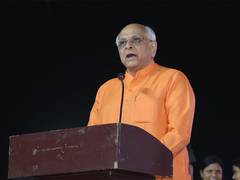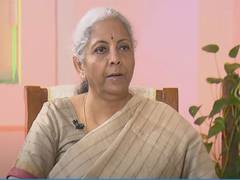“Our demand to government is to implement Article 15(5)”: Congress MP Jairam Ramesh
New Delhi [India], March 31 (ANI): Congress MP Jairam Ramesh has again reiterated the demand for a legislation to implement Article 15(5) of the Constitution in private educational institutions.
Termng this provision, as a “revolutionary” amendment, the Congress MP stated that this article gives reservation to the youth of Scheduled Castes, Scheduled Tribes and backward classes in the government or private institutions.
“The country should know that the Constitution was amended in 2006, when Manmohan Singh was the Prime Minister and Arjun Singh was the Education Minister and Article 15(5) was added to our Constitution which means that in educational institutions, whether government institutions or private institutions, reservation can be given to youth from Scheduled Castes, Scheduled Tribes and backward classes…This was a revolutionary amendment…” Ramesh told ANI.
The Congress MP further said that the Congress government during its reign has implemented this in government educational institutions, the Delhi University, IITs and the IIMs.
He said, “In the first phase, we did it in government educational institutions, Delhi University, IITs, IIMs. In January 2014, the Supreme Court unanimously said that the amendment made in the Constitution, Article 15(5), is not against the basic structure of our Constitution…Then elections were held. PM Modi’s government came, 11 years have passed, but it has been completely ignored…Our demand to the government is to implement Article 15(5)…”
Earlier today, Jairam Ramesh reiterated the party’s demand for legislation to implement Article 15(5) of the Constitution of India in private educational institutions.
In the statement issued, Ramesh said that this article was introduced through the 93rd Amendment Act in 2005, which allows for special provisions to be made for the advancement of socially and educationally backward classes, Scheduled Castes, and Scheduled Tribes in educational institutions, including private ones.
The statement issued by Jairam Ramesh, reads, “The Constitution (Ninety-third Amendment) Act, 2005 took effect from January 20, 2006. This amendment introduced Article 15(5) in the Constitution of India and reads as follows: Nothing in this article or sub-clause (g) of clause (1) of Article 19 shall prevent any special provision, by law, for the advancement of any socially and educationally backward classes of citizens or for the Scheduled Castes or the Scheduled Tribes insofar as such special provisions relate to their admission to educational institutions including private educational institutions, whether aided or unaided by the State, other than the minority educational institutions referred to in clause (1) of Article 30.”
Reiterating the demands of bringing this legislation, the Congress General Secretary highlighted that the Supreme Court has validated Article 15(5) multiple times with landmark judgments in cases such as Ashoka Kumar Thakur v Union of India (2008), IMA vs Union of India (2011), and Pramati Educational and Cultural Trust v Union of India (2014).
Ramesh stated that the Congress had made this commitment in its 2024 Lok Sabha election manifesto, “Nyay Patra” and this stance is also supported by the Parliamentary Standing Committee on Education, Women, Children, Youth, and Sports, which recommended new legislation to implement Article 15(5) in its 364th report.
Article 15 (5) allows the state to make special provision by law, for the advancement and development of socially and educationally backward classes or for SC/STs for their admission in educational institutions both government and private, whether they are aided or unaided, other than the minority educational institutions.






